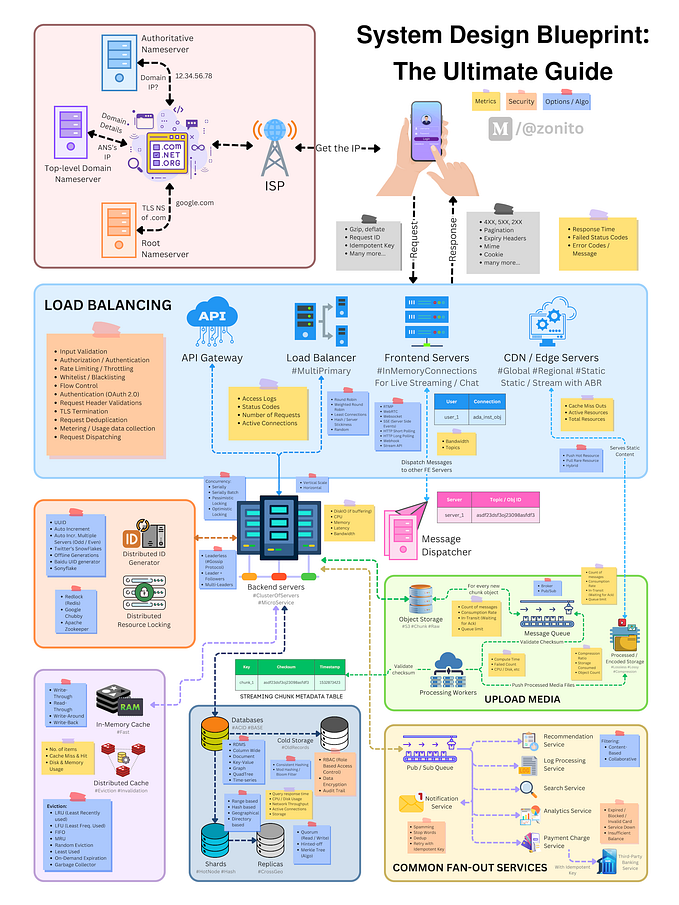Building a High-Performing Engineering Team
10 things every engineering manager should know to build a high-performing team
As an engineering manager, you have a lot of responsibilities. You need to make sure your team has the tools and resources they need to do their job, you need to be a resource for them when they have questions, and you need to make sure they’re staying on track with their projects.
But most importantly, you need to build a high-performing engineering team. A team that works well together, trusts each other, and is able to produce high-quality work.
It’s not easy, but with the right tools and a little bit of guidance, you can get there. In this article, I’m going to share ten things every engineering manager should know in order to build a high-performing team.
Stop Managing and Start Leading
So you’ve been promoted to engineering manager — congratulations! Now it’s time to put your management skills to the test. But before you can start leading your team to glory, there are a few things you need to know.
For starters, stop managing and start leading. As a leader, your job is to establish trust between everyone in your team and set an example for them to follow. And remember, it’s not all about the money — high-performing teams are built on trust, respect, and communication.
Good luck — and may the force be with you!
The Importance of Trust
As an engineering manager, one of the most important things you need to cultivate in your team is trust. Without trust, your team will be unable to work together effectively or share information openly.
How do you build trust in your team? It’s not as difficult as you might think. One way is to lead by example. As a leader, you need to establish trust between everyone on the team. This means being transparent and honest with your team, and being willing to listen to their feedback.
Trust is also built through relationships — so take the time to get to know your team members on a personal level. By doing so, you’ll be able to understand their individual strengths and weaknesses, and how they best work together.
Peer-to-peer Accountability
As a manager, it’s your job to hold your team accountable. But that doesn’t mean you should do all the holding. In fact, one of the most effective ways to hold your team accountable is to empower them to hold each other accountable.
That’s where peer-to-peer accountability comes in. When team members are given the opportunity to point out each other’s mistakes and hold each other accountable, it creates an environment of trust and responsibility. And that’s what leads to high-performing teams.
The Importance of Being a Team Player
When it comes to building a high-performing engineering team, one of the most important things to remember is that you need to be a team player. That means setting the example for others and establishing trust between everyone in the team.
Being a leader doesn’t mean bossing people around — it means leading by example. As a leader, you need to make sure that everyone in your team feels comfortable and able to speak up. You also need to be able to trust them to get the job done.
So if you’re looking to build a world-class engineering team, remember — being a team player is key.
Always Challenge the Status Quo
You should always challenge the status quo — even if it makes people uncomfortable. As an engineering manager, you need to strive for constant innovation and evolution in order to create a high-performing team. And that means pushing the envelope, even if it means pissing some people off.
Some members of your team may feel threatened when you start shaking things up. But as long as you’re doing it for the right reasons (i.e., to improve the team’s overall performance), they’ll eventually come around. In the meantime, be prepared to face some resistance, and don’t be afraid to put your foot down.
The Importance of Continuous Improvement
As an engineering manager, you know that continuous improvement is essential to the success of your team. But what does that actually mean? And how can you achieve it?
Well, as the old saying goes, “you can’t improve what you don’t measure.” So the first step is to track the performance of your team against key metrics. Are they meeting deadlines? Producing high-quality code? Solving problems quickly? If not, why not? And what can you do to help them improve?
You also need to ensure that everyone in your team feels comfortable constantly raising their game. As a leader, it’s your job to create an environment where everyone feels safe speaking up — and where mistakes are seen as opportunities for learning. Only then will you be able to build a high-performing engineering team that truly excels.
The Importance of Clear Communication
As a manager, one of your most important tasks is to maintain clear and open communication within your team. This starts with making sure everyone is on the same page, and it continues with ensuring that communication flows in both directions.
In other words, you need to be a leader, not a manager. As a leader, you need to set the example for the rest of your team. You need to be approachable, and you need to be willing to listen to feedback — both positive and negative. Most importantly, you need to establish trust between everyone in the team.
With clear communication and trust in place, you can build a high-performing engineering team that will take your business to the next level.
The Importance of Goal Setting
As a manager, it’s your responsibility to set the tone and direction for your team. And the best way to do that is by establishing goals. But not just any goals — SMART goals.
SMART goals are specific, measurable, achievable, relevant, and time-based. That means they’re not some pie-in-the-sky ideal that you and your team will never achieve. They’re realistic goals that you can work towards and achieve over time.
So how do you set SMART goals? It’s simple — just follow these steps:
1) Define the goal
2) Set a deadline
3) Make sure the goal is measurable
4) Make sure the goal is achievable
5) Make sure the goal is relevant
6) Make sure the goal is time-based
The Importance of Celebrating Successes
As a manager, it’s important to celebrate successes — both big and small. Why? Because it helps to build trust between team members and encourages them to work harder next time.
Think about it: when someone on your team does something great, it makes you feel good. You feel like you’re a part of something special, and you want to do your best to live up to that standard.
So go ahead and celebrate successes — and make sure your team knows that you’re doing it! It’ll help them feel appreciated, motivated, and (most importantly) part of a team that’s on the path to success.
The Importance of Having Fun
As an engineering manager, you need to find ways to let your team blow off some steam. If they’re always under pressure, they’ll eventually break. And when that happens, the whole team will suffer.
So how do you get your team to let loose? It’s not as hard as you might think. In fact, all you need to do is introduce some fun activities that everyone can enjoy. You could play a game of foosball, for example, or have a picnic in the park.
The important thing is to make sure that everyone has a good time. When your team is having fun, they’ll be more productive and less likely to argue with each other.
Conclusion
As an engineering manager, you need to make sure that you have a high-performing team. But what does that mean, exactly? And how do you go about building one?
Well, it starts with creating an environment of trust. As the leader of your team, you need to set an example and show that you’re willing to be held accountable. You also need to be a team player and be willing to challenge the status quo.
Building a high-performing engineering team isn’t easy, but it’s definitely worth the effort. So don’t hesitate to get started today.
If you want to keep in touch feel free to ping me on Twitter segaldoron







